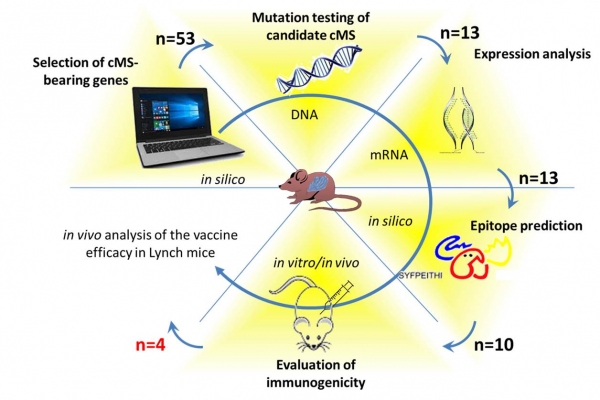Modelling MSI immunology in mice
Existence of shared neoantigens with high immunogenicity in MSI cancers allows to design treatment approaches which can be applied not only in therapeutic, but also in a preventive setting. This would be of a particular interest for Lynch syndrome patients. However, due to underdiagnosis of Lynch syndrome patients as well as long observation periods required to show the tumor-preventive effect, it is highly challenging to accomplish this goal in a short time in humans. The short life span of mice, however, allows to analyze the preventive capacities of certain frame shift peptide candidates.
We used a mouse model for Lynch syndrome, where by means of genetic engineering the MMR genes in the colonic tissue are switched off. In the developed tumors, we are analyzing coding microsatellite mutations and immunogenicity of frame shift neoantigens derived thereof. From this analysis, we identify the most promising candidates and prepare the evaluation of the FSP-vaccination alone or in combination with other currently available tumor-preventive and immunotherapeutic approaches in prevention of MSI cancers.
Dr. Steven Lipkin, Weill Cornell University, New York, US
Dr. Robert Shoemaker, NCI, Washington, US
Dr. Asad Umar, NCI, Washington, US






